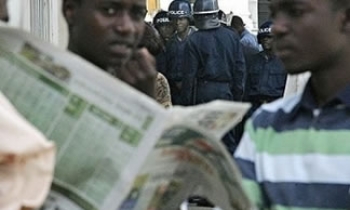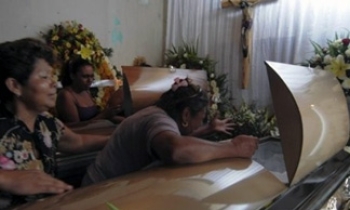The US government's attempts to flout news-gathering privilege hit another road-block on August 11 when a court denied its request to block an amicus curiae brief signed by numerous news organisations in support of CBS in its effort to quash a government subpoena.
The case concerns an interview with US Staff Sergeant Frank Wuterich by Scott Pelley, aired on March 18, 2007 on "60 Minutes". Wuterich is charged by the military with dereliction of duty and voluntary manslaughter in the death of 14 Iraqi civilians in Haditha, Iraq.
In February, the government subpoenaed CBS for the videotape of the interview, saying they were trying to assess whether Wuterich had said anything in un-aired parts of the interview that were pertinent to their case. CBS refused to turn over the tape and said that the government's request was "unreasonable and oppressive." That same month a military judge sided with CBS and quashed the subpoena, but the government appealed the decision.
The Navy-Marines Corps Court of Criminal Appeals directed the judge to conduct "additional fact-finding," including a private review of the videotape to determine if any part of it was "relevant and necessary" to the sergeant's prosecution. CBS is appealing the decision to the next highest appeals court.
RSF joined the amicus curiae brief filed on July 21 with a group of other media organisations. The brief argued that a judge's in camera review of newsgathering materials as directed by the appeals court raised First Amendment issues and should only happen under specific conditions which had not been met.
The government then filed an objection to the filing of the amicus brief. However, this inordinate attempt to keep the brief out of the court failed, with the Court of Appeals for the Armed Forces granting the motion of the organisations to file in support of CBS. The appeals case will now proceed, with the higher court of appeals determining whether or not a judge needs to review the tape.









